This article was medically reviewed by Pradeep Adatrow, DDS, MS. Dr. Pradeep Adatrow is the only board certified Dentist, Periodontist, and Prosthodontist in the southern United States. With over 15 years of experience, Dr. Adatrow specializes in dental implants, TMJ treatments, periodontal plastic surgery, surgical and non-surgical periodontics, bone regeneration, laser treatments, and soft tissue and gum graft procedures. He received a BS in Epidemiology and Biostatistics from the University of Alabama and earned his Doctor of Dental Surgery (DDS) degree from the University of Tennessee College of Dentistry. Dr. Adatrow then completed a three-year postgraduate program in periodontics and implantology at Indiana University and went on to complete another three-year postdoctoral program in advanced prosthodontics from the University of Tennessee. He also serves as a full-time professor and the Director of Surgical Prosthodontics at the University of Tennessee. Dr. Adatrow received the Dean's Junior Faculty Award and the John Diggs Faculty Award, and he was inducted into the Deans Odontological Society. He is board certified by the American Board of Periodontology and is a Fellow of the prestigious International College of Dentistry – a feat that only 10,000 others worldwide can claim.
There are 18 references cited in this article, which can be found at the bottom of the page.
This article has been viewed 18,546 times.
Temporomandibular Joint Disorder, often abbreviated as TMJ or TMD, is a common condition affecting the joint that controls your ability to talk, chew, yawn and move your jaw side-to-side. TMJ is usually caused by genetic factors or physical trauma to the jaw area but is often exacerbated by lifestyle factors like stress or chewing hard foods. There are numerous options for dealing with TMJ that range from serious neuromuscular surgery to making slight lifestyle changes. Understand your options so you can resolve your jaw pain quickly.
Steps
Preventing Flare-ups
-
1Eat soft foods. Harder foods that require intense chewing can exacerbate TMJ symptoms and even cause injury if your jaw joint is already weakened.[1] While this is not a permanent solution, eating softer foods will prevent acute pain and soreness.
- Eggs, yogurt, fruit smoothies, cooked beans, fish, soft chicken, ground meat, cooked rice and soup are good examples of soft foods that will prevent pain.
-
2Avoid extreme jaw movements. Overuse of the jaw muscles and joints can cause acute pain associated with TMJ. Try to keep yawning and hard chewing to a minimum. Try to avoid yelling, singing, or doing anything that forces you to open your mouth wide.[2]
- Try to avoid resting your chin on your hand.
- Don’t hold the phone between your shoulder and ear.
- Practice good posture to reduce neck and facial pain.
Advertisement -
3Keep your teeth slightly apart. Clenching or gnawing your teeth can exacerbate TMJ symptoms. Try to keep your teeth from touching as often as possible.
- Put your tongue between your teeth to control clenching or grinding during the day.
-
4Learn relaxation techniques.[3] General stress can manifest as muscle and joint pain. Stress reduction will prevent painful flare-ups and reduce tension that can exacerbate TMJ symptoms.[4]
- Try some deep breathing exercises. Slow take in air until your lungs are full and then slowly exhale. Try to clear your mind and focus solely on your breathing.[5]
- Yoga is a great way to relieve stress. Try some basic stretching poses that will relieve tension in your back, where nerve endings are concentrated, like downward-facing dog and child’s pose.[6]
- Get a therapeutic massage that relieves tension in your shoulder and neck muscles.
Taking Medications
-
1Try an analgesic. Analgesics, also known as pain killers, are the most common way of treating acute pain.[7] Some are available over-the-counter and some will require a prescription from a doctor. Analgesics will provide only temporary relief and will need to be taken consistently until you seek a more permanent solution.[8]
- If you don’t want to see a doctor, buy some Acetaminophen, sold under various brand names including Tylenol and Panadol. They will be available at all major drug stores. Overuse can cause liver and stomach problems so be sure to follow the directions for appropriate dosage and frequency.
-
2Try a nonsteroidal anti-inflammatory drug. There are several drugs available that will reduce inflammation and limit inflammation-related soreness. They will be available over-the-counter at all major drug stores. These drugs provide temporary relief and will need to be taken consistently until you seek a more permanent solution. Overuse can cause gastrointestinal problems so take as directed. See a doctor before taking them if you have a history of gastrointestinal problems.[9]
- One option is Ibuprofen, sold under various brand names including Advil and Motrin.
- Another option is Naproxen, sold under various brand names including Midol and Aleve. Naproxen is longer lasting than Ibuprofen.
-
3Try nerve pain medication. TMJ involves damage to nerve endings in your jaw. As such, you may want to ask your doctor about medications designed specifically for nerve pain. These medications will require a prescription and include Amitriptyline, Desipramine, Nortriptyline and Doxepin.[10]
- These medications all treat depression and sleep disorders. If you already take a medication for these conditions, be sure to talk to your doctor first as they may interact negatively.
-
4Try a muscle relaxant. TMJ can cause strain and inflammation in your facial muscles. As such, you may want to ask your doctor about muscle relaxants. Mild muscle strain should heal itself over time so relaxant medications only need to be taken for a temporary period. These medications will require a prescription. [11]
- Cyclobenzaprine, sold under the brand names Amrix and Fexmid, will treat pain, stiffness and spasms in your muscles.
- Metaxalone, sold under the brand name Skelaxin, will relieve the pain and inflammation from muscle strain. This is better for more serious muscle pain.
Using Hot and Cold Therapy
-
1Massage your jaw. Try to soften your jaw muscles by gently massaging them. Focus on the area around your jaw joint, just in front your ears.
- Rub your fingers in a circular motion until you start to feel the pain subside. Start gently and add pressure as comfort allows.[12]
-
2Apply ice. Start with ice to numb the muscles. You can use an ice pack or even a bag of frozen peas. Hold it gently against the jaw and keep it there for 5 to 10 minutes.
-
3Apply heat. Then use heat to relax the jaw muscles. You can use a heating pad or a hot-water bottle. Hold it gently against the jaw and keep it there for about 20 minutes.
- Make sure the temperature is warm but not scalding hot.
-
4Repeat the process. Alternate between hot and cold until your pain starts to subside. Give a few minutes between each repetition to see how your jaw feels. You can do this as many times as it takes until you start feeling relief.[13]
Using Non-Surgical Dental Procedures
-
1Get a night guard or splint. Get a plastic mouthpiece that fits over your teeth so they won’t touch. They will prevent harmful clenching and grinding commonly associated with TMJ. They will also improve your bite by placing your teeth in the proper position.[14]
- You should wear your night guards while you sleep and you wear a splint at all times. Your dentist will determine which one you need.
-
2Get new dental work. TMJ can sometimes be exacerbated by old dental work or poor tooth alignment. Your dentist might need replace missing teeth or use crowns, bridges, or braces to adjust your bite surface.[15]
-
3Get Transcutaneous Electrical Nerve Stimulation (TENS). This therapy uses low-level electrical currents to provide pain relief by relaxing your jaw joint and facial muscles. It can be done at the dentist's office or at home. A TENS unit includes electrodes that can placed on areas with muscle pain. For TMJ, place the electrodes on your jaw joint just in front of your ears.
- Home TENS kits are available at most major retailers and drug stores. They typically cost between $40 and $150.
- Use rubbing alcohol to clean the area first. The machine will have a nob for increasing the strength and one for increasing frequency.
- Start low on each nob and first slowly increase the strength until you start to feel relief and then adjust the frequency until the relief is sustained.[16]
-
4Get trigger-point injections. Trigger points are areas where the muscle tenses into a knot. Pain medication is injected into the facial muscles near the jaw joint, undoing the knots.[17]
- Trigger point injections can cost up to $400 if you’re paying out of pocket. Talk to your health insurance provider to see if the procedure is covered.
- Other than some temporary soreness at the injection site, this procedure shouldn’t have any substantive side-effects. This should provide several weeks of temporary relief for your TMJ symptoms.
-
5Get radio wave therapy. TMJ is sometimes exacerbated by a lack of circulation. Radio wave therapy will increase the flow of blood by warming your facial muscle fibers with low levels of electrical waves.
- The cost of radio wave therapy varies but generally costs around $250 out of pocket. Talk to your health insurance provider to see if the procedure is covered.
- The procedure only takes a few moments and shouldn’t cause any substantive side-effects or soreness. This should provide several weeks of temporary relief for your TMJ symptoms.
Getting Dental Surgery
-
1Ask about an Arthrocentesis. Arthrocentesis is a clinical procedure where a syringe is used to collect fluid from a joint capsule. It is also known as joint aspiration. The doctor will insert a needle into the joint and wash it out. They may use a special tool to get rid of damaged tissue or dislodge a disc stuck in the joint or to unstick the joint itself. This procedure is minor and can be done in your dentist’s office with a local anesthetic like Procaine.[18]
- The Procaine injection and procedure may leave you with a numb sensation and soreness for up to 24 hours.
- The cost of this procedure varies widely but will be covered by most health insurance providers if your doctor deems it necessary.
-
2Ask about an Arthroscopy. An Arthroscopy is a surgery done with an arthroscope. This special tool has a lens and a light on it. It lets your doctor see inside your joint. You’ll get local anesthesia, then the doctor will make a small cut in front of your ear and insert the tool. The scope will be hooked up to a video screen, so the doctor can examine your joint and the area around it. They may remove inflamed tissue or realign the disc or joint.[19]
- This type of surgery, known as minimally invasive, leaves a smaller scar, has fewer complications, and requires a shorter recovery time than a major operation.
- The cost of this procedure varies widely but will be covered by most health insurance providers if your doctor deems it necessary.
-
3Ask open-join surgery. Depending on the cause and severity of your TMJ, arthroscopy may not be possible. Open-joint surgery is a fairly serious procedure but should provide the most permanent and guaranteed solution to your TMJ symptoms. You may need this procedure if the bones in your jaw are wearing down, if you have tumors around the jaw joint or if your joint is scarred and full of bone chips.[20]
- This procedure is sometimes performed with a local anesthetic like Procaine but can sometimes require a general anesthetic that knocks you unconscious.
- This procedure may require recovery time of several days or even a few weeks.
- The cost of this procedure varies widely but will be covered by most health insurance providers if your doctor deems it necessary.
Expert Q&A
Did you know you can get expert answers for this article?
Unlock expert answers by supporting wikiHow
-
QuestionWhat can make TMD worse?
 Pradeep Adatrow, DDS, MSDr. Pradeep Adatrow is the only board certified Dentist, Periodontist, and Prosthodontist in the southern United States. With over 15 years of experience, Dr. Adatrow specializes in dental implants, TMJ treatments, periodontal plastic surgery, surgical and non-surgical periodontics, bone regeneration, laser treatments, and soft tissue and gum graft procedures. He received a BS in Epidemiology and Biostatistics from the University of Alabama and earned his Doctor of Dental Surgery (DDS) degree from the University of Tennessee College of Dentistry. Dr. Adatrow then completed a three-year postgraduate program in periodontics and implantology at Indiana University and went on to complete another three-year postdoctoral program in advanced prosthodontics from the University of Tennessee. He also serves as a full-time professor and the Director of Surgical Prosthodontics at the University of Tennessee. Dr. Adatrow received the Dean's Junior Faculty Award and the John Diggs Faculty Award, and he was inducted into the Deans Odontological Society. He is board certified by the American Board of Periodontology and is a Fellow of the prestigious International College of Dentistry – a feat that only 10,000 others worldwide can claim.
Pradeep Adatrow, DDS, MSDr. Pradeep Adatrow is the only board certified Dentist, Periodontist, and Prosthodontist in the southern United States. With over 15 years of experience, Dr. Adatrow specializes in dental implants, TMJ treatments, periodontal plastic surgery, surgical and non-surgical periodontics, bone regeneration, laser treatments, and soft tissue and gum graft procedures. He received a BS in Epidemiology and Biostatistics from the University of Alabama and earned his Doctor of Dental Surgery (DDS) degree from the University of Tennessee College of Dentistry. Dr. Adatrow then completed a three-year postgraduate program in periodontics and implantology at Indiana University and went on to complete another three-year postdoctoral program in advanced prosthodontics from the University of Tennessee. He also serves as a full-time professor and the Director of Surgical Prosthodontics at the University of Tennessee. Dr. Adatrow received the Dean's Junior Faculty Award and the John Diggs Faculty Award, and he was inducted into the Deans Odontological Society. He is board certified by the American Board of Periodontology and is a Fellow of the prestigious International College of Dentistry – a feat that only 10,000 others worldwide can claim.
Board Certified Dentist & Oral Surgeon
-
QuestionHow can I relax my jaw?
 Pradeep Adatrow, DDS, MSDr. Pradeep Adatrow is the only board certified Dentist, Periodontist, and Prosthodontist in the southern United States. With over 15 years of experience, Dr. Adatrow specializes in dental implants, TMJ treatments, periodontal plastic surgery, surgical and non-surgical periodontics, bone regeneration, laser treatments, and soft tissue and gum graft procedures. He received a BS in Epidemiology and Biostatistics from the University of Alabama and earned his Doctor of Dental Surgery (DDS) degree from the University of Tennessee College of Dentistry. Dr. Adatrow then completed a three-year postgraduate program in periodontics and implantology at Indiana University and went on to complete another three-year postdoctoral program in advanced prosthodontics from the University of Tennessee. He also serves as a full-time professor and the Director of Surgical Prosthodontics at the University of Tennessee. Dr. Adatrow received the Dean's Junior Faculty Award and the John Diggs Faculty Award, and he was inducted into the Deans Odontological Society. He is board certified by the American Board of Periodontology and is a Fellow of the prestigious International College of Dentistry – a feat that only 10,000 others worldwide can claim.
Pradeep Adatrow, DDS, MSDr. Pradeep Adatrow is the only board certified Dentist, Periodontist, and Prosthodontist in the southern United States. With over 15 years of experience, Dr. Adatrow specializes in dental implants, TMJ treatments, periodontal plastic surgery, surgical and non-surgical periodontics, bone regeneration, laser treatments, and soft tissue and gum graft procedures. He received a BS in Epidemiology and Biostatistics from the University of Alabama and earned his Doctor of Dental Surgery (DDS) degree from the University of Tennessee College of Dentistry. Dr. Adatrow then completed a three-year postgraduate program in periodontics and implantology at Indiana University and went on to complete another three-year postdoctoral program in advanced prosthodontics from the University of Tennessee. He also serves as a full-time professor and the Director of Surgical Prosthodontics at the University of Tennessee. Dr. Adatrow received the Dean's Junior Faculty Award and the John Diggs Faculty Award, and he was inducted into the Deans Odontological Society. He is board certified by the American Board of Periodontology and is a Fellow of the prestigious International College of Dentistry – a feat that only 10,000 others worldwide can claim.
Board Certified Dentist & Oral Surgeon
References
- ↑ Pradeep Adatrow, DDS, MS. Board Certified Dentist & Oral Surgeon. Expert Interview. 30 September 2020.
- ↑ https://my.clevelandclinic.org/health/diseases/15066-temporomandibular-disorders-tmd-overview
- ↑ Pradeep Adatrow, DDS, MS. Board Certified Dentist & Oral Surgeon. Expert Interview. 30 September 2020.
- ↑ https://www.painscience.com/articles/spot-07-masseter.php
- ↑ http://psychcentral.com/lib/learning-deep-breathing/
- ↑ https://www.pennmedicine.org/updates/blogs/health-and-wellness/2020/september/tmj-pain-relief-8-best-practices-to-help-manage-tmd
- ↑ Pradeep Adatrow, DDS, MS. Board Certified Dentist & Oral Surgeon. Expert Interview. 30 September 2020.
- ↑ http://patient.info/doctor/temporomandibular-joint-dysfunction-and-pain-syndromes
- ↑ http://emedicine.medscape.com/article/809598-medication
- ↑ https://www.aafp.org/afp/2015/0315/p378.html
- ↑ http://www.practicalpainmanagement.com/patient/conditions/tmj/medications-tmj-disorders
- ↑ http://www.massagetoday.com/mpacms/mt/article.php?id=14578
- ↑ http://www.tmj.org/Page/36/18
- ↑ https://findadawsondentist.com/do-you-need-an-occlusal-splint-or-night-guard/
- ↑ http://www.tmjhope.org/tmj-treatment/tmj-splint-therapy/
- ↑ https://www.drugs.com/cg/how-to-use-a-tens-unit.html
- ↑ http://emedicine.medscape.com/article/1997731-overview
- ↑ http://www.tmjhope.org/info-for-patients/tmj-arthrocentesis/
- ↑ https://www.sciencedirect.com/topics/medicine-and-dentistry/temporomandibular-joint-arthroscopy
- ↑ https://www.healthdirect.gov.au/surgery/open-tmj-surgery
-Step-1-Version-2.webp)

-Step-2-Version-2.webp)
-Step-3-Version-2.webp)
-Step-4-Version-2.webp)
-Step-5-Version-2.webp)
-Step-6-Version-2.webp)
-Step-7-Version-2.webp)
-Step-8-Version-2.webp)
-Step-9-Version-2.webp)
-Step-10-Version-2.webp)
-Step-11-Version-2.webp)
-Step-12-Version-2.webp)
-Step-13-Version-2.webp)
-Step-14-Version-2.webp)
-Step-15-Version-2.webp)
-Step-16-Version-2.webp)
-Step-17-Version-2.webp)
-Step-18-Version-2.webp)
-Step-19-Version-2.webp)
-Step-20-Version-2.webp)
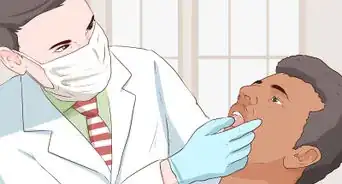
-with-Jaw-Exercises-Step-11.webp)
-Step-20-Version-2.webp)
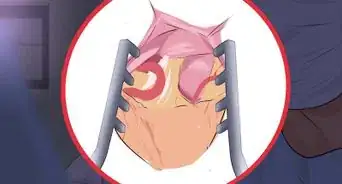
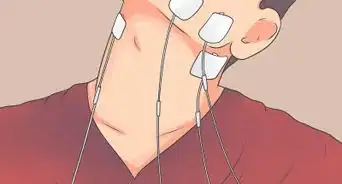

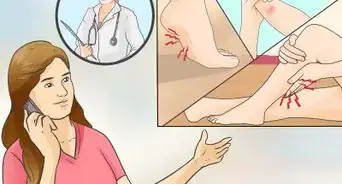



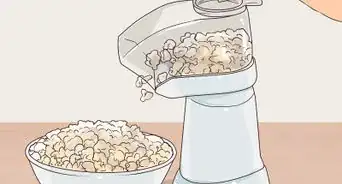







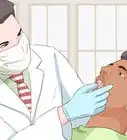
-with-Jaw-Exercises-Step-11.webp)
-Step-20-Version-2.webp)




































Medical Disclaimer
The content of this article is not intended to be a substitute for professional medical advice, examination, diagnosis, or treatment. You should always contact your doctor or other qualified healthcare professional before starting, changing, or stopping any kind of health treatment.
Read More...